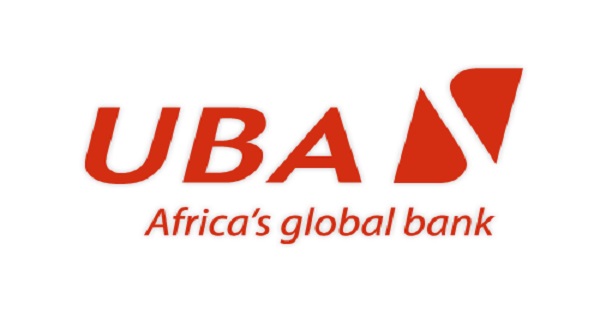E-Financial
UBA Approves Financial Accounts, Set to Declare Dividend

Shareholders of United Bank for Africa (UBA) Plc are expecting the announcement of a final dividend for the 2018 financial year.
This followed the approval of the bank’s financial statements for the year ended December 31, 2018.
In a notification to the Nigerian Stock Exchange (NSE), UBA said its Board of Directors last Monday approved its financial statements and payment of dividend to shareholders, subject to the approval of the Central Bank of Nigeria (CBN).
“We shall provide the details of the results and dividend payments as well as related corporate actions to the Exchange upon the approval of the accounts by the CBN,” the bank said in the notification signed by Mr. Bili Odum, group company secretary.
Market operators and shareholders are highly optimistic that UBA will declare final dividend higher than what was paid for the 2017 financial year.
The bank paid a total dividend of 85 kobo in 2017, comprising 20 kobo interim and 65 kobo final. It has already paid an interim of 20 kobo for the half year ended June 2018 and given its improved results for the nine months, stakeholders expect a higher final dividend for the year.
UBA posted a profit before tax (PBT) of N79.1 billion for the nine months ended September 30, 2018, compared with N78.2 billion while profit after tax (PAT) improved from N60.9 billion from N61.6 billion.
 Uzoka, GMD/CEO, UBA Plc
Uzoka, GMD/CEO, UBA Plc
Commenting on the nine months performance, Kennedy Uzoka, group managing director/CEO, UBA Plc, said: “We achieved a number of strategic imperatives during the quarter and committed more investments in the future of the business – building a solid foundation for sustainable and superior return to our shareholders.”
Also speaking on the performance, Ugo Nwaghodoh, group chief financial officer said that despite the relative volatility in the third quarter of 2018, especially in the face of United States interest rate hikes and concerns over global trade war, which has disrupted the interest and exchange rate environment in many African countries, the bank remains on track to deliver its earnings target for the year.
He said: “We remain committed to our five-year plan of working down cost to income ratio (CIR) to 50 per cent, which we consider to be a normalised medium-term CIR. Overall, we closed the third quarter with a post-tax return on average equity (RoAE) of 16 per cent and the Group remains well capitalised and liquid, as reflected in the Group’s capital adequacy of 21 per cent and bank’s liquidity ratio of 53 per cent.”
E-Financial
Sterling Bank Pledges ₦2bn to Fully Fund University Scholarships

Sterling Bank has launched a ₦2 billion scholarship initiative to support Nigerian students in private universities. The program, Beyond Education, was unveiled on Democracy Day and aims to remove financial barriers to higher learning.

The bank will fully sponsor 600 students from across Nigeria’s 36 states and the FCT to study Technology, Finance, Sales, and Public Health at Miva University, founded by Sim Shagaya. The selection process is merit-based, with candidates nominated by themselves or others, and final selection determined through public voting open to Sterling account holders.
Sterling Bank’s CEO, Abubakar Suleiman, described the initiative as an investment in Nigeria’s future, aligning with the bank’s commitment to Health, Education, Agriculture, Renewable Energy, and Transportation. The bank has already deployed over half a trillion naira in financing across these sectors.
According to Obinna Ukachukwu, Growth Executive at Sterling Bank, the program is about creating opportunities beyond education. The bank is shifting from short-term philanthropy to long-term ecosystem development, with investments in digitized healthcare, school financing, agricultural cooperatives, solar energy, and transport systems.
“Nigeria’s progress requires action,” Suleiman said. “We are funding the future architects of the country—those who will build the businesses, institutions, and innovations needed for national prosperity.”
Nominations for the Beyond Education scholarships are now open at www.sterling.ng/FUTURE. The initiative sets a precedent for private-sector-driven education investment, where success is measured not just in profit, but in people empowered.
E-Financial
FG to Train 100,000 Youths Annually in Forex Trading and Financial Skills

Federal Government of Nigeria has signed a Memorandum of Understanding (MoU) with Investonaire Academy to train 100,000 young Nigerians annually in forex trading, financial planning, and risk management.

The agreement, signed in Abuja, was announced by Omolara Esan, Director of Information and Public Relations at the Federal Ministry of Youth Development. According to her, the initiative is part of the government’s broader strategy to reduce youth unemployment and enhance financial inclusion.
At the signing ceremony, Minister of Youth Development, Comrade Ayodele Olawande, described the partnership as a milestone in the ministry’s efforts to equip young Nigerians with practical financial skills. He emphasized that the programme would foster critical thinking, improve digital literacy, and expand access to global economic opportunities.
Speaking on the collaboration, Dr. Enefola Odiba, International Programme Director at Investonaire Academy, highlighted the importance of empowering youth with relevant financial and digital skills. He described young people as essential drivers of innovation and national development.
The ministry assured that the programme would be implemented with transparency and measurable outcomes, ensuring that participants gain practical expertise in forex trading and financial planning.
The Federal Government has recently intensified efforts to boost skill development across various sectors. A separate plan aims to train 100,000 artisans nationwide, following the successful upskilling of 29,000 individuals in previous phases. This initiative seeks to professionalize vocational trades, eliminate quackery, and introduce licensing systems.
Additionally, technicians from specialized institutions will receive industry-standard training to strengthen Nigeria’s labor force and increase self-reliance in skilled professions.
Through these efforts, the government hopes to position Nigerian youth for economic success both locally and globally.
E-Financial
NDIC Begins Final Settlements to Creditors of Liquidated Premier Bank

Nigeria Deposit Insurance Corporation (NDIC) has begun the final phase of liquidation for the defunct Premier Commercial Bank, initiating the payment of liquidation dividends to verified creditors, nearly 25 years after the bank’s closure.

Premier Commercial Bank had its operating license revoked by the Central Bank of Nigeria (CBN) on December 20, 2000, following findings of financial instability and regulatory non-compliance.
Since then, the NDIC has overseen the bank’s liquidation process under a winding-up order from the Federal High Court, which designated the corporation as the official liquidator.
In a public announcement, the NDIC invited all eligible creditors to visit any of its zonal offices between June 2 and June 27, 2025, to verify and claim their entitlements.
This move marks a critical milestone in the final settlement of claims related to the bank’s collapse.
To facilitate the verification process, creditors are required to present proof of deposit or shareholding, such as a passbook, chequebook, term deposit certificate, or bank statement.
Additionally, valid identification documents must be submitted, including a driver’s license, international passport, national identity card, NIN slip/card, voter’s card, or a formal identification letter from a traditional ruler or local government chairman.
The NDIC assured the public that the ongoing settlement is part of a broader effort to bring closure to longstanding claims resulting from Premier Commercial Bank’s liquidation. The process, according to the corporation, has been designed to ensure efficient disbursement to all verified stakeholders.
Premier Commercial Bank is one of 53 deposit money banks whose licenses were revoked by the CBN between 1994 and 2018 due to various violations and signs of financial distress.
These closures were followed by legal procedures appointing the NDIC to manage asset recoveries and creditor settlements.
By initiating this final phase of payment, the NDIC is reaffirming its commitment to financial system stability and depositor protection while calling on all affected individuals and institutions to complete verification processes promptly to receive their due compensation.

 General News3 days ago
General News3 days agoAfDB to Provide $184.1mfor Africa’s Largest Solar Energy, Battery Storage Project

 General News3 days ago
General News3 days agoCourt Declines Access Bank’s Request to Freeze MTNN Account over N180Bn Claims

 News3 days ago
News3 days agoReport Reveals New Malware Posing as an AI Assistant Steals User Data

 Telecom3 days ago
Telecom3 days agoMTN Mulls Establishment of Fintech Firm in Nigeria, Others

 News3 days ago
News3 days agoAliko Dangote Signs out @ Dangote Sugar Refinery as Chairman

 E-Business3 days ago
E-Business3 days agoFG Mulls Fibre Optic Layout to Bridge Internet Gaps

 E-Financial3 days ago
E-Financial3 days agoFG to Train 100,000 Youths Annually in Forex Trading and Financial Skills

 E-Financial2 days ago
E-Financial2 days agoSterling Bank Pledges ₦2bn to Fully Fund University Scholarships













